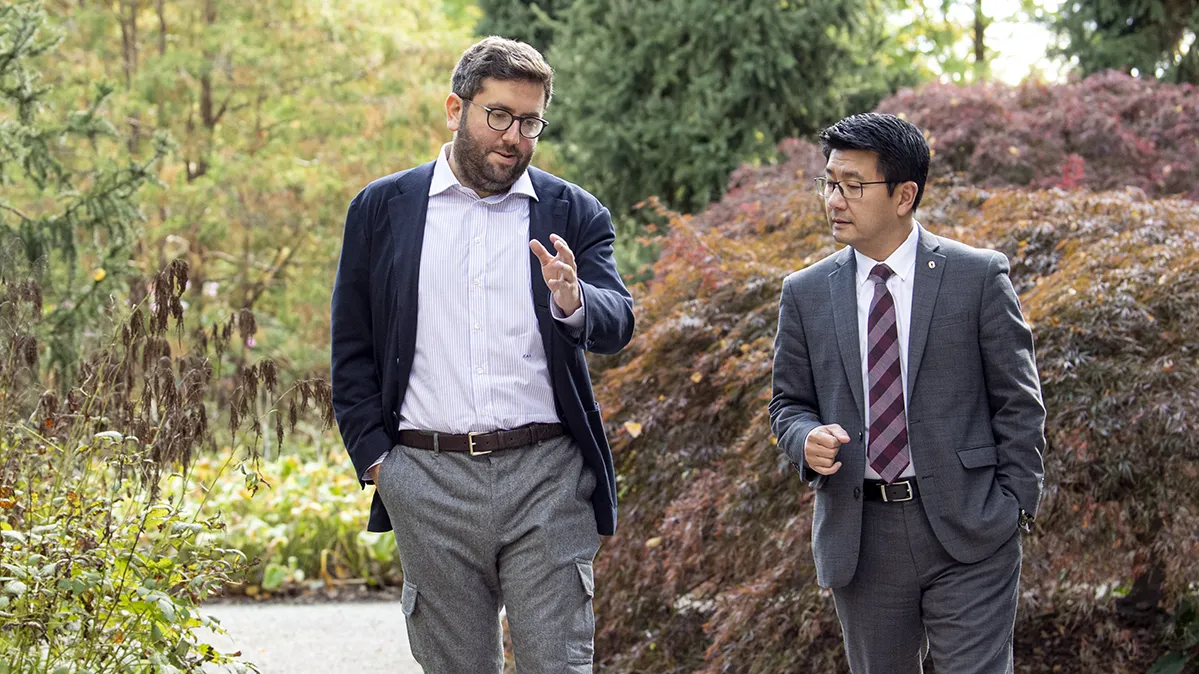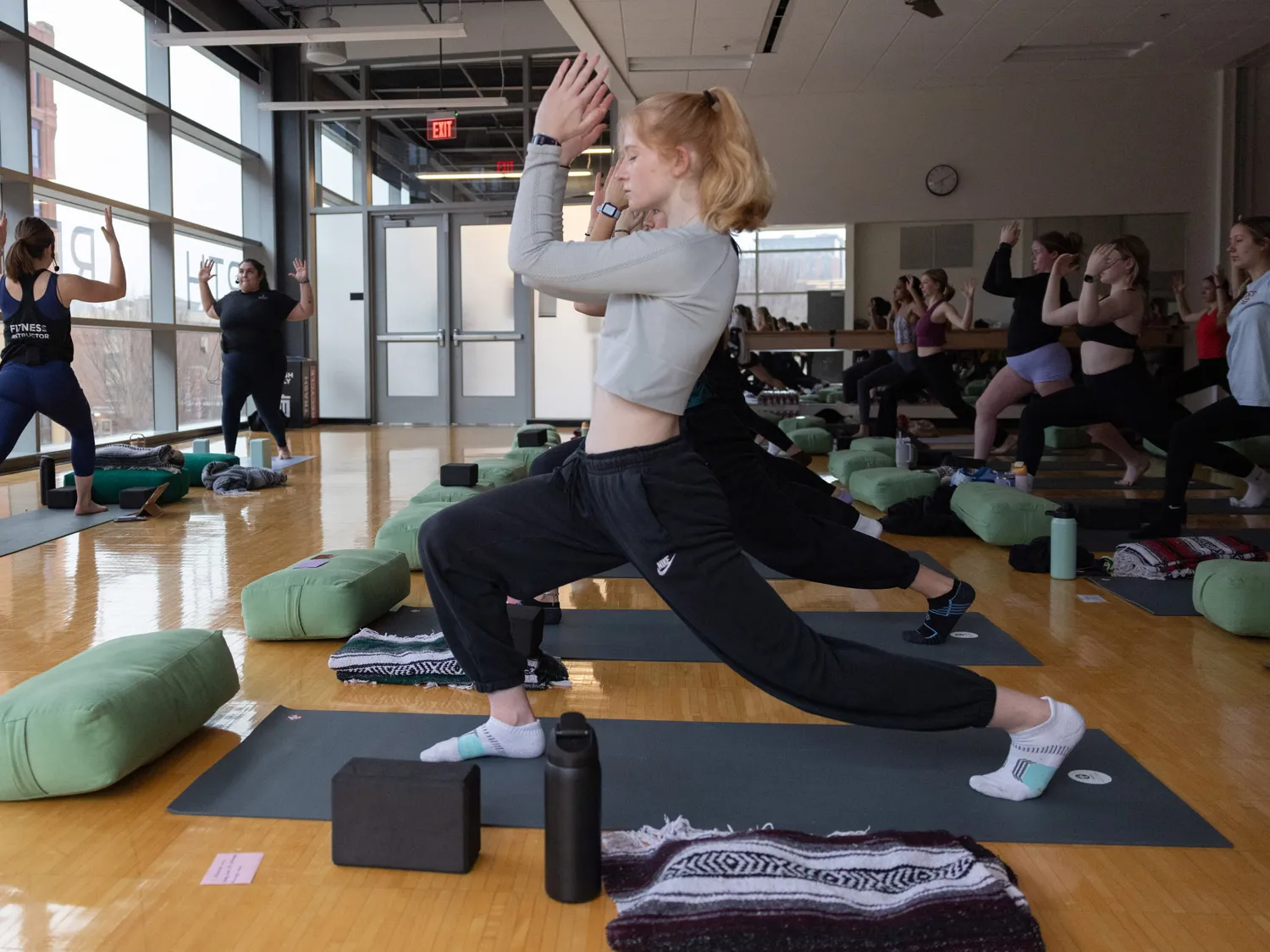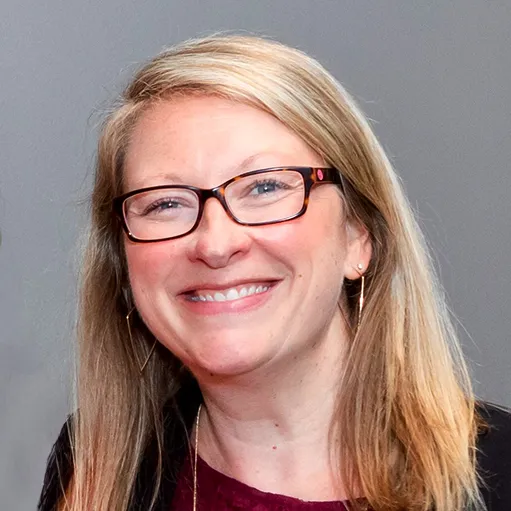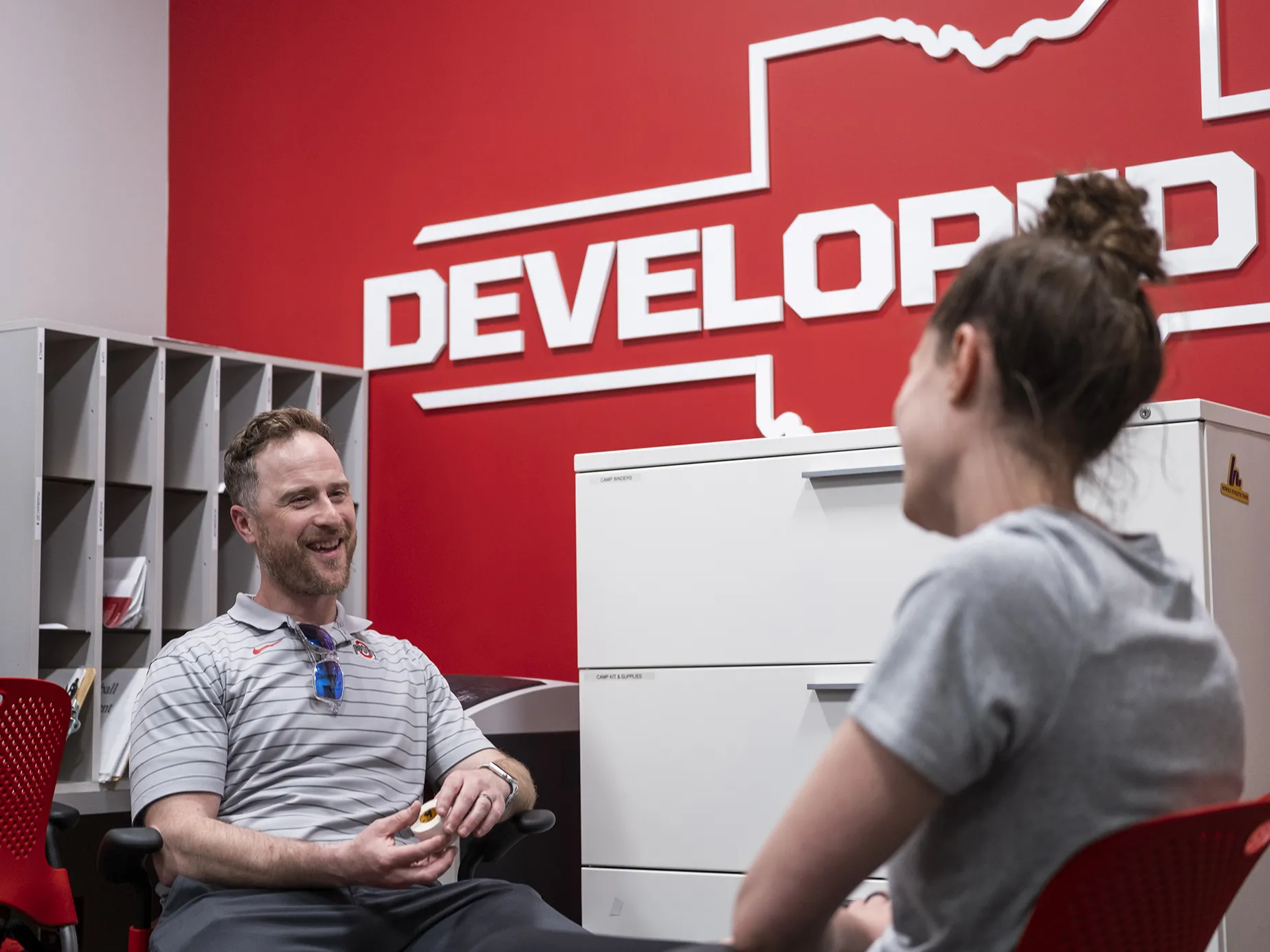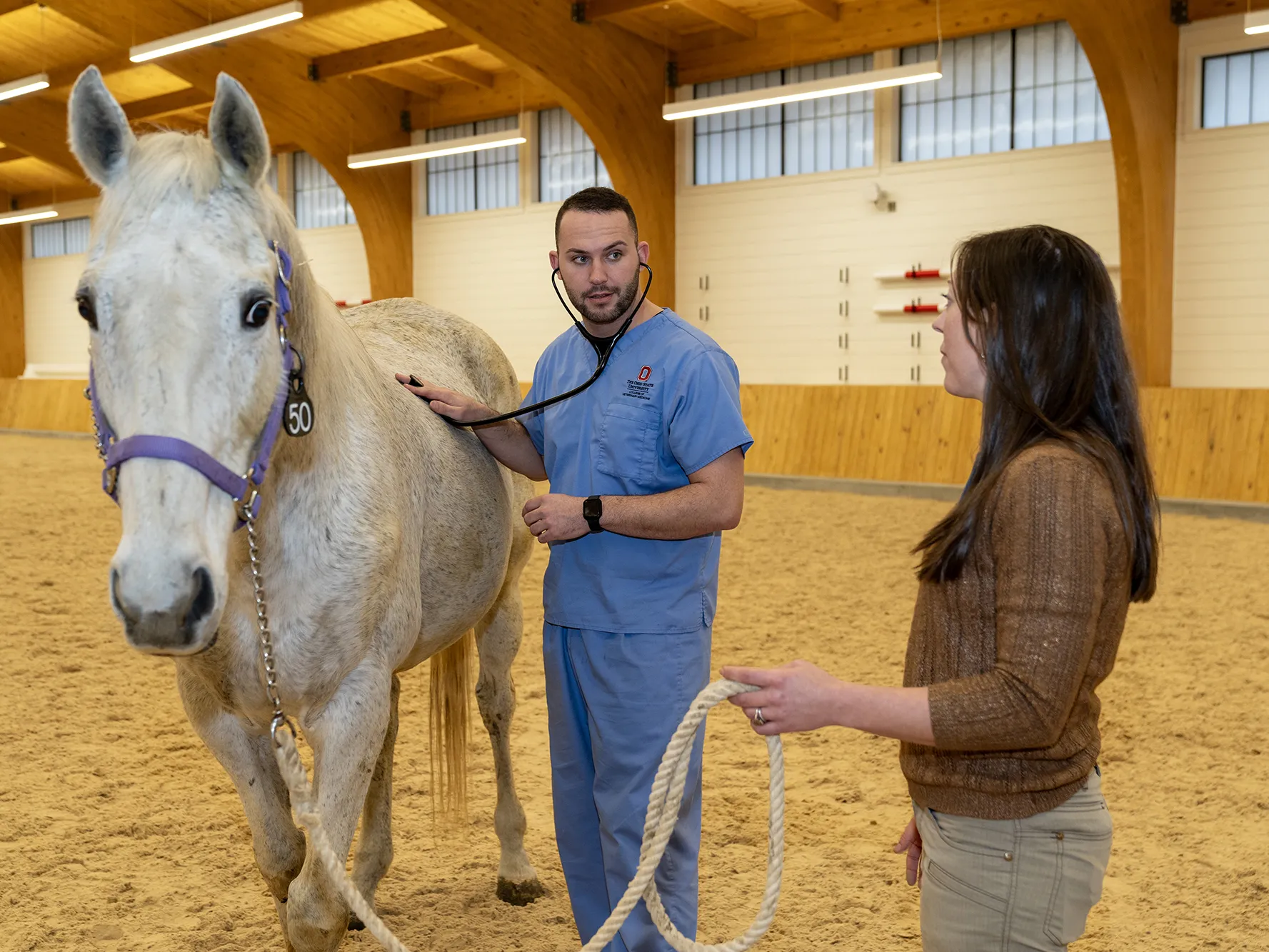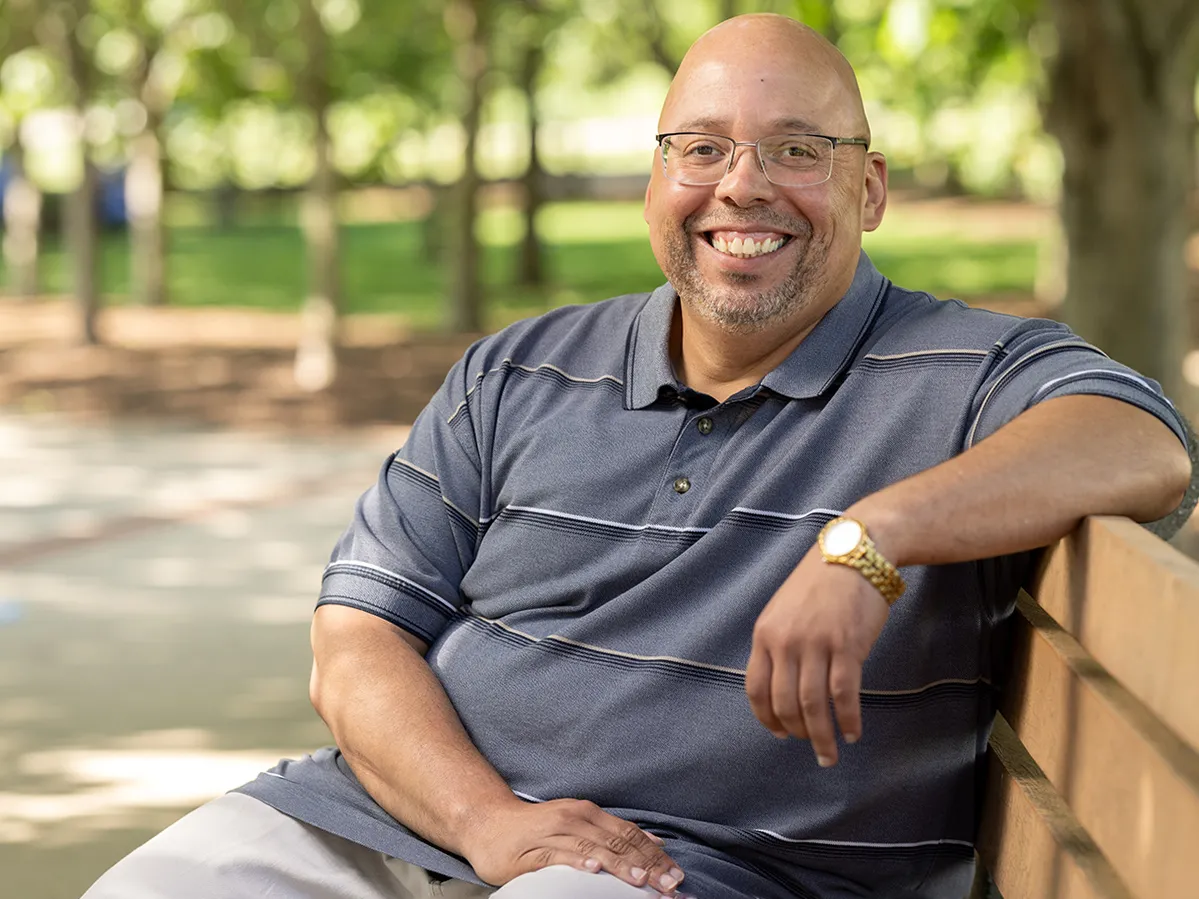“I don’t want to imagine students not having the resources they need for their mental health,” says Jeffrey Schottenstein, who has been open about his own struggles, which intensified during his freshman year at Ohio State in 2003. “Going from high school to college, I never realized how hard it would be.”
Motivated by the desire to provide students today with the kind of program that would have helped him, Schottenstein created the Jeffrey Schottenstein Program for Resilience with Dr. K. Luan Phan, professor and chair of the Department of Psychiatry and Behavioral Health. The program aims to help students where they are now, as well as equip them with skills and tools for a lifetime of mental wellness.
“Resilience is not just being able to bounce back; it’s also about adapting, learning and even thriving from adversity,” says Phan, who holds the Jeffrey Schottenstein Endowed Chair of Psychiatry and Resilience. “The young adult population is important to Jeffrey, so the program allows for contemporary, outside-the-box approaches.”
Schottenstein and his parents, Jay and Jeanie ’78, donated $10.15 million in 2021 to launch the effort.
“I knew, if I’m going to trailblaze this, I needed to put my name on it,” Schottenstein says. “I hope I can be a catalyst for people to put their names out there, share their stories and not feel shame or guilt.”
Central to the program’s approach is uniquely understanding young adults’ mental health challenges. That’s why, Phan says, he tapped Professor of Psychology Jennifer Cheavens and Dr. Meera Menon, an assistant professor of psychiatry, to be co-directors. Cheavens, a psychologist whose research focuses on hope and kindness, works with students daily. Menon, a psychiatrist at the medical center, has treated young people her entire career.
Together, they are pursuing student-driven, resilience-focused research. This includes examining the impact of reframing mental health messages on social media and determining the effectiveness of an app meant to detect crisis symptoms earlier, in partnership with app maker Pandora Bio. Cheavens and Menon also are designing a project, called Fail Better, to explore how exposure to stories of failure that evolves into growth can build a sense of belonging and resilience.
These initiatives and others, such as a long-term study of students’ mental health in medical school, ultimately will help inform the program’s clinical offerings, which continue to evolve. The program is enhancing care access through expanded outpatient and inpatient services, as well as a growing staff of sports psychiatrists. The next goal: a 24/7 Young Adult Program to offer services beyond traditional hours.
To meet students — and faculty — where they already are, Cheavens and Menon are helping to bolster existing campus programs focused on mental health. Cheavens, for example, is lending her research background to Scarlet and Grit, a resilience training program for student-athletes.
Complementing the nationally recognized expertise of the faculty directors is a 10-member advisory board that includes former football player Harry Miller ’23 and Sarah Anstine ’15 MPA, who, as a student, helped start Ohio State’s Collegiate Recovery Community.
Each board member understands challenges facing young people, making their perspectives invaluable, Cheavens says. “Through the board, we have access to successful, engaged people with lived experiences similar to those we are trying to reach. That helps us to ensure the program is meaningful for students.”
Looking ahead, Phan, Cheavens and Menon are excited to see their initial efforts and research begin bearing fruit and increasing clinical opportunities — none of which would be possible without the Schottenstein Program for Resilience’s namesake.
Since the program’s establishment, Schottenstein and his wife, Ariella, have become parents. They hope their children’s generation will inherit a world that is more aware, empathetic and resilient, in part thanks to work happening now at Ohio State.
“I call this program a movement,” Schottenstein says. “We have Dr. Phan and this group of people who genuinely care and want to push this movement forward. This is the team I want to be on.”
